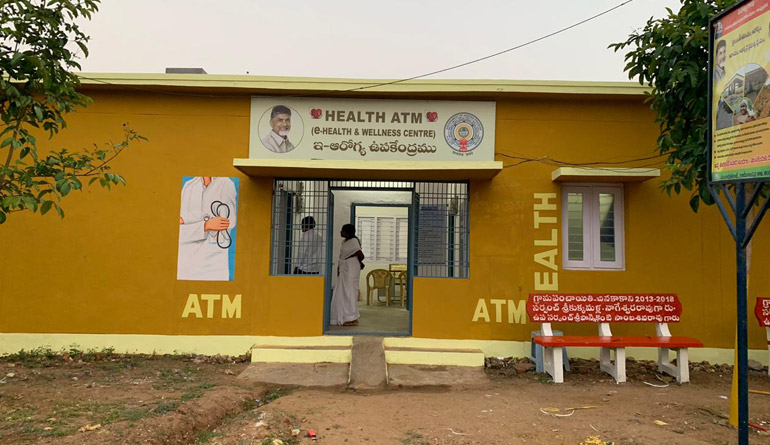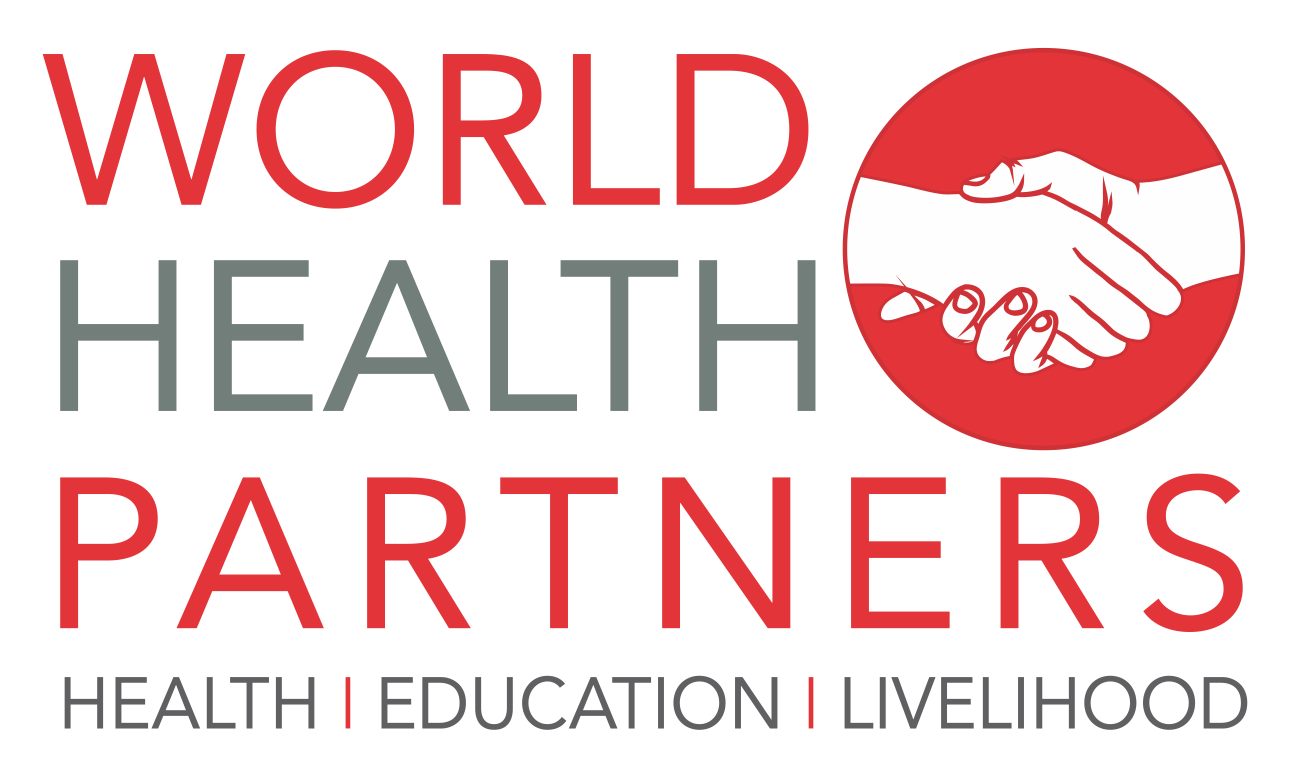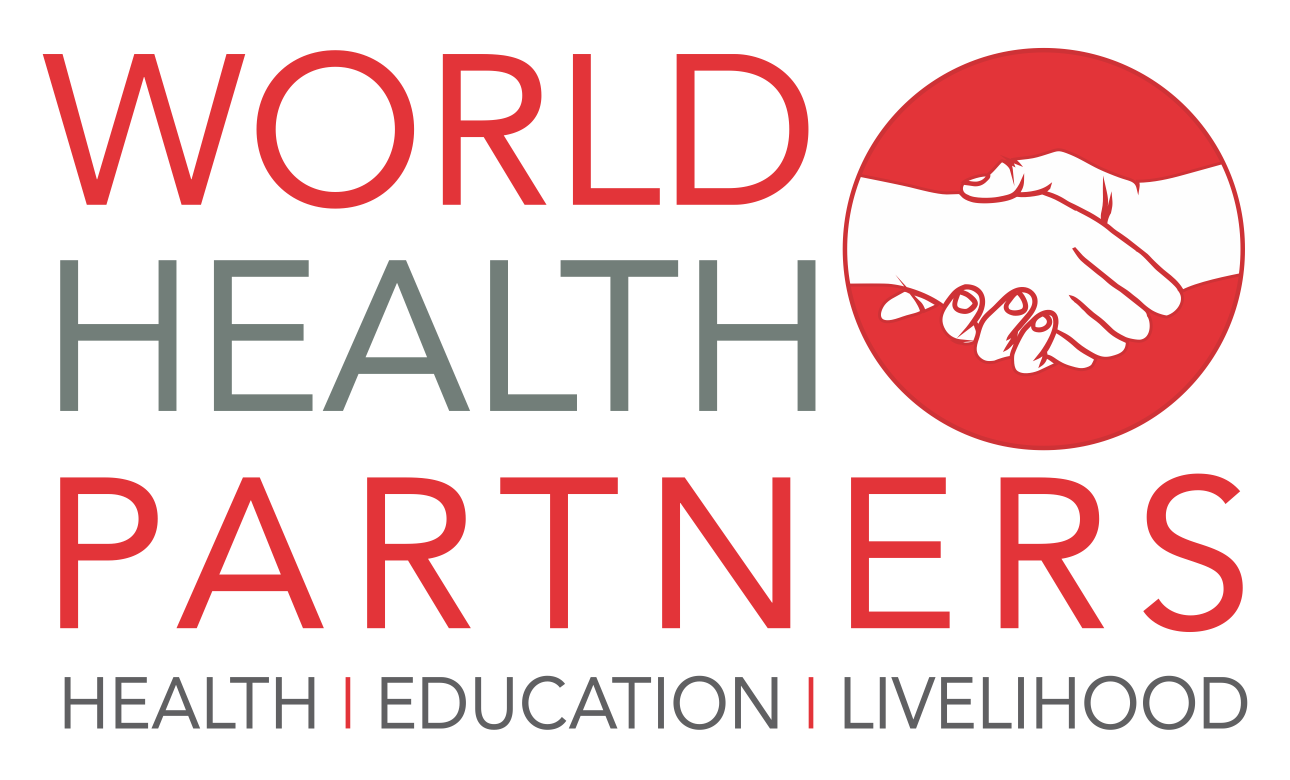ANDHRA PRADESH E-SUB CENTER HEALTH ATM
TOWARDS UNIVERSAL HEALTH COVERAGE: IN PARTNERSHIP WITH THE ANDHRA PRADESH GOVERNMENT

With a vision to bring comprehensive healthcare to rural communities, a consortium led by World Health Partners launched the e-Sub Centre Health ATM project in the southern Indian State of Andhra Pradesh. This Rs. 770 crores ($110 million), five-year World Bank-funded project seeks to add a curative care component to the already existing 4300 village Sub-centres where the earlier focus was largely on preventive care. Covering 7,779 villages of Andhra Pradesh, these sub-centres touch an estimated 36 million people. One zone with 333 centres became fully functional but the change of government in the state has now decided to freeze the project at this number and start on a revised model.
The project harnesses harnessing the wide availability of mobile connectivity and the internet and focuses on facilitating medical consultations to rural patients from urban doctors. Along with the average cost of maintenance of Rs 28,000 ($400) per centre per month, the Government of Andhra Pradesh would also incur the cost of the personnel deployed and medicines prescribed at these centres, which would amount to a supplementary contribution of about Rs 107 crore ($15 million) on a full scale model covering 4300 Sub-centres.
The Andhra Pradesh programme provides, even on the limited scope, an opportunity to reinstate the original spirit of the Alma Ata Declaration of 1978 which emphasized attention to both preventive and curative services of primary health within easy access. Readers may remember that the curative part was removed from the agenda due to non-availability of medical personnel at the front-end. With the advent of digital communication technologies, WHP has brought back the curative services which will set the state on a pathway to achieve universal health coverage.
HOW IT WORKS: THE PROCESS
Each sub-centre strengthened by the consortium is managed by one or two Auxiliary Nurse-Midwives (ANMs), depending on the size of the population it serves. The ANMs are trained professionals who already provide a range of preventive services such as immunization, ante-natal care and growth monitoring and also have a strong relationship with the community. Integrating curative care would bring services within walkable distance to the communities the sub-centres serve. The project had to make many innovative adjustments to integrate a curative component into such centres. One such is by installing a remote doctor-operated drug vending machine since the nurse is legally not allowed to dispense most medicines.
The project trains the ANMs in accurate capture of symptoms and proper usage of devices that provide vital health parameters to the consulting doctor. Since an electronic medical record is created under a unique ID for each patient and stored in the cloud, retrieval in the future or centralized monitoring is easy.
PARTNERSHIP WITH AP GOVERNMENT
In the area of healthcare delivery to underserved communities, this project has all the hallmarks of a paradigmatic transition: a substantially new model of primary care, at scale, extraordinarily leveraged, financed through the host government to ensure long-term sustainability, harnessing ICT and concepts of precision medicine concepts with prospects of adding new medical tools linked to artificial intelligence and virtual reality in the future.
WHP welcomes the opportunity to collaborate to implement this commitment.
Partner with Us

